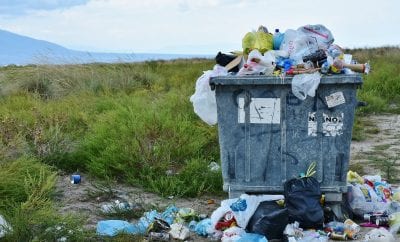
Lifestyle
Easy Ways to Reduce Waste in your Everyday Lives
By now we’re all used to bringing our own bags with us to the grocery store (or you’re used to paying the ten cents per bag if you keep forgetting). We’re becoming accustomed to cutting waste when it comes to grocery shopping, but there are many other ways that we can be reducing wast in our day to day lives. Environmental consciousness is important, and it’s so easy to do your part to protect the planet. If everyone makes an effort to reduce waste, then the harmful chemicals and greenhouse gasses released landfill sites will be greatly reduced, and our earth’s natural resources will be preserved. Tweaking your daily routine just a bit can result in big environmental changes.
The grocery store is a good place to start. You can go beyond just bringing your own bags! When you’re perusing the aisles, there’s a lot of conscientious choices you can make that factor in reducing waste. One simple way to keep the planet in mind when you’re at the market is to choose products that are reusable or refillable over single-use items. Avoid individually wrapped items, snack packs, and single-serve containers. Buy large containers of items or from bulk bins whenever practical.
Another place that is often overlooked when it comes to reducing waste? The mailbox. The average resident in America receives over 30 pounds of junk mail per year. Imagine how much space you could clear from a landfill if we all reduced the amount of unwanted mail we receive. Junk mail is not only bad for the environment, it’s also just an annoyance. So how do you get rid of it? The most important thing you can do to keep your name off junk mail lists is to control your exposure. Think about how often you give out your contact information via product warranties, professional associations, publication subscriptions, contest sweepstakes, writing checks or shopping online. Remember to consistently add a privacy statement to anything you put your name on and ask not to be added to their mailing list. Also, sign up for electronic bank statements rather than getting them mailed once a month.
Think about composting food scraps and yard waste. Composting is the natural process of decomposition and recycling of organic material into a rich soil amendment known as compost. If you can use your excess food and waste as a way to help the environment instead of adding to a landfill, why wouldn’t you? Food and yard waste accounts for about 20-30 percent of garbage. Here are just a few examples of what we can be composting:
- Fruits and vegetables
- Eggshells
- Coffee grounds and filters
- Tea bags
- Shredded newspaper
- Cardboard
- Paper
- Yard trimmings
- Grass clippings
There are so many simple things that we can be doing to reduce waste and help the environment. We hope you will do your part and remember these helpful tips!





0 comments